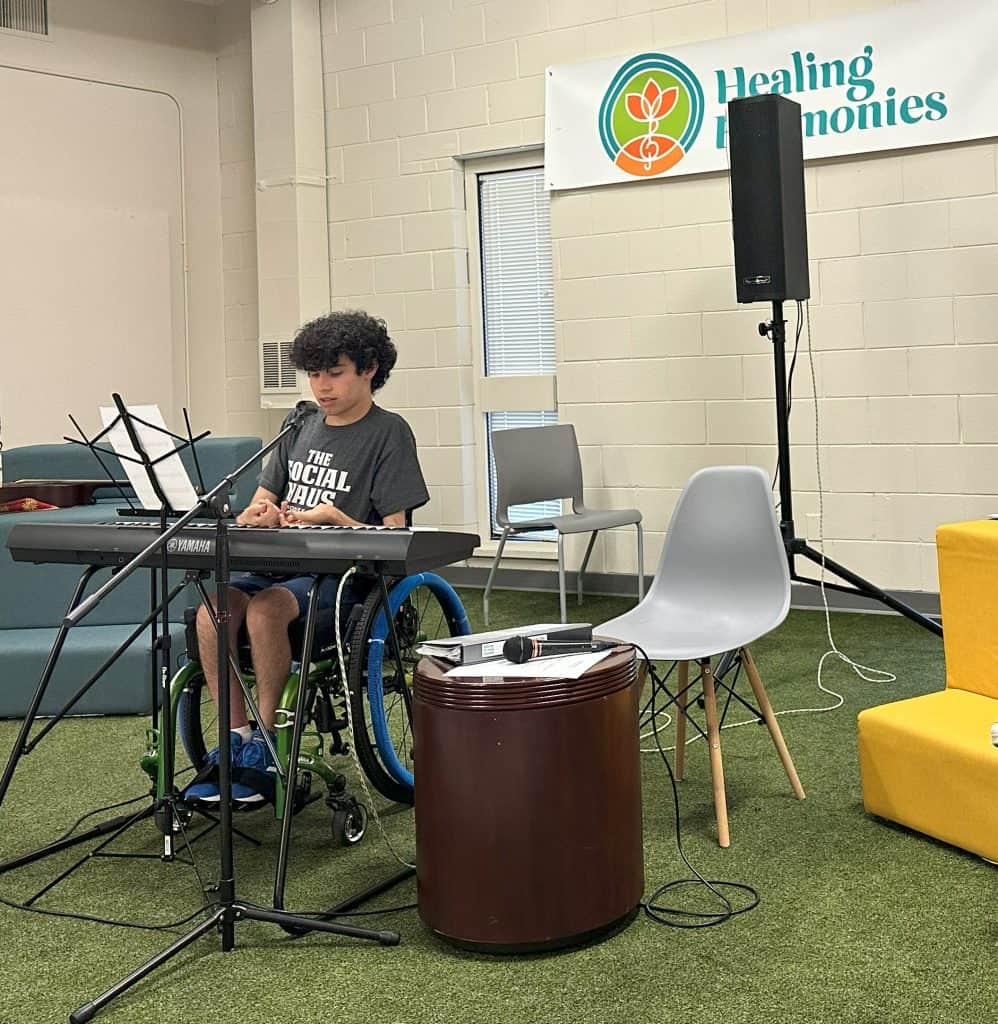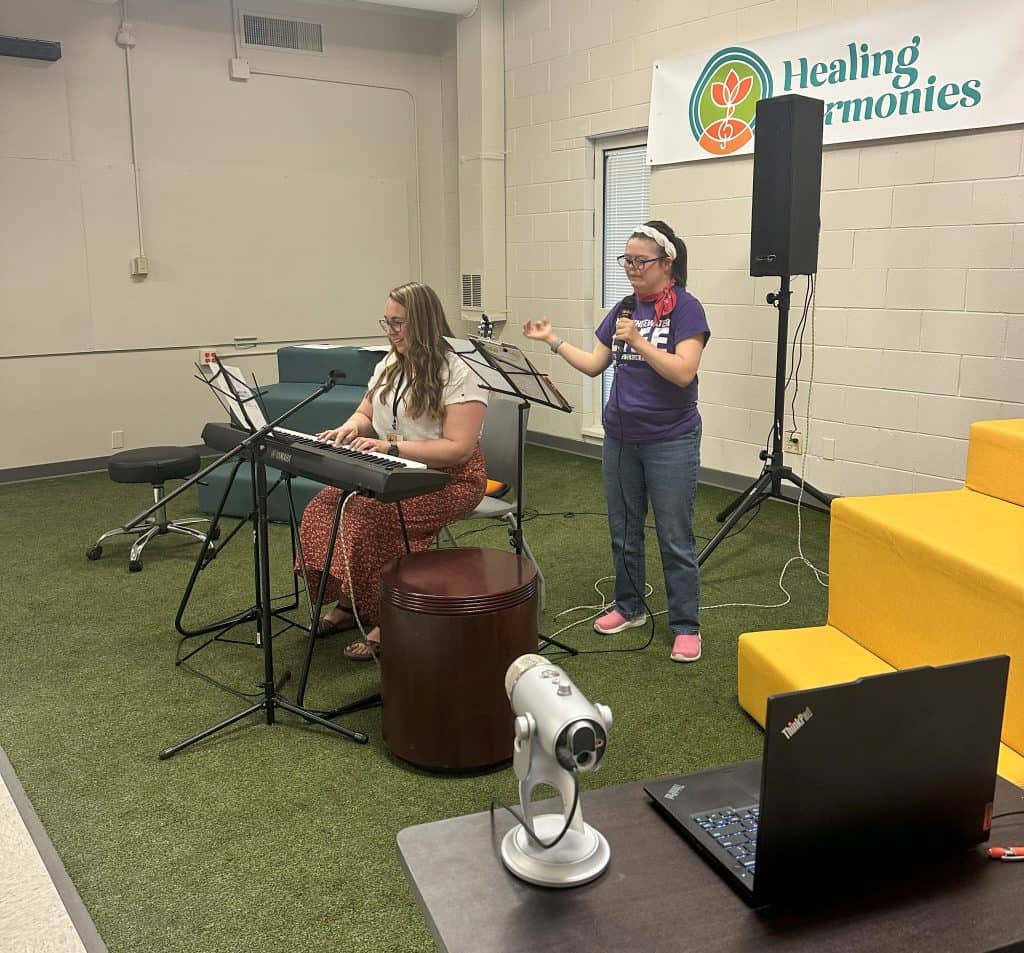Performance is not a necessary step in every music therapy client’s journey, but for some, performing in a recital can be an amazing way to work towards therapeutic goals and impact your community. Here are five examples of the power of performance:
1. Planning Ahead
A great musical performance may look effortless to the audience, but don’t be fooled! It likely required planning and preparation. A performer needs to select a song weeks or even months ahead of time, then create a practice schedule to make their goal of learning the song achievable. This planning stage requires many complex executive functioning skills, such as self-monitoring and organization. A music therapist is trained to assess a person’s cognitive abilities in order to provide just the right amount of support in this process. That way, a client can succeed but still feel challenged along the way. These cognitive skills can transfer to other settings, too, leading to increased success in meeting deadlines at work or completing long-term projects in school.
2. Practice Makes Perfect
You’ve probably heard the phrase “practice makes perfect.” Neuroscience tells us this is especially true for the brain! Your brain depends on repetition to help you learn and grow. When you complete the same difficult task over and over again, your neuroplasticity increases, and your brain can form new and stronger neural pathways. Practicing a song repeatedly in preparation for a recital might feel boring and challenging, but it’s important. A music therapist can motivate you and give you the tools needed to complete that repetitive work.
3. Self-Expression
Music is about more than playing the right notes and singing the right words. It’s about expressing yourself and your emotions. Singing and playing instruments are powerful creative outlets. No one can perform a song quite like you can. You bring a certain “you”ness to the table that can’t be replicated by anyone else. A recital provides an opportunity for you to express yourself to a live audience, and have your unique musicality be celebrated by the community.
4. Overcoming Anxiety
Palms sweating, heart pounding, voice shaking — this sounds like a classic case of the pre-recital jitters. Many people avoid public speaking due to social anxiety and fear of failure. Nobody wants to make a mistake, especially in front of a crowd. A music therapist can help you learn coping skills to self-regulate, calm your heart rate, and feel more in control. With solid regulation strategies, performing can feel less like a leap into the deep end and more like stepping onto solid ground. If you perform your song perfectly, great! That’ll build confidence. And if you make a mistake on stage, great! That’s a learning moment. Life goes on, and the audience will still be supportive. If there is no opportunity to fail, there is no possibility of growth.
5. Impacting Community
A recital can be therapeutic not only for the performer but also for the audience. When shared with others, art has the power to create a ripple effect. A musical performance could inspire an audience member, causing a shift in their thoughts, feelings, and actions. That person’s actions might inspire another person, and another, rippling out further and further. One small song can make a huge lasting impact.
Healing Harmonies hosts an annual art and music showcase, providing our clients with an opportunity to share their creativity with the community. Spread Your Wings, our 2025 art and music showcase, will be held on April 30th and May 1st. Our clients have much to say with their art, and we can’t wait to listen. We hope to see you there!

